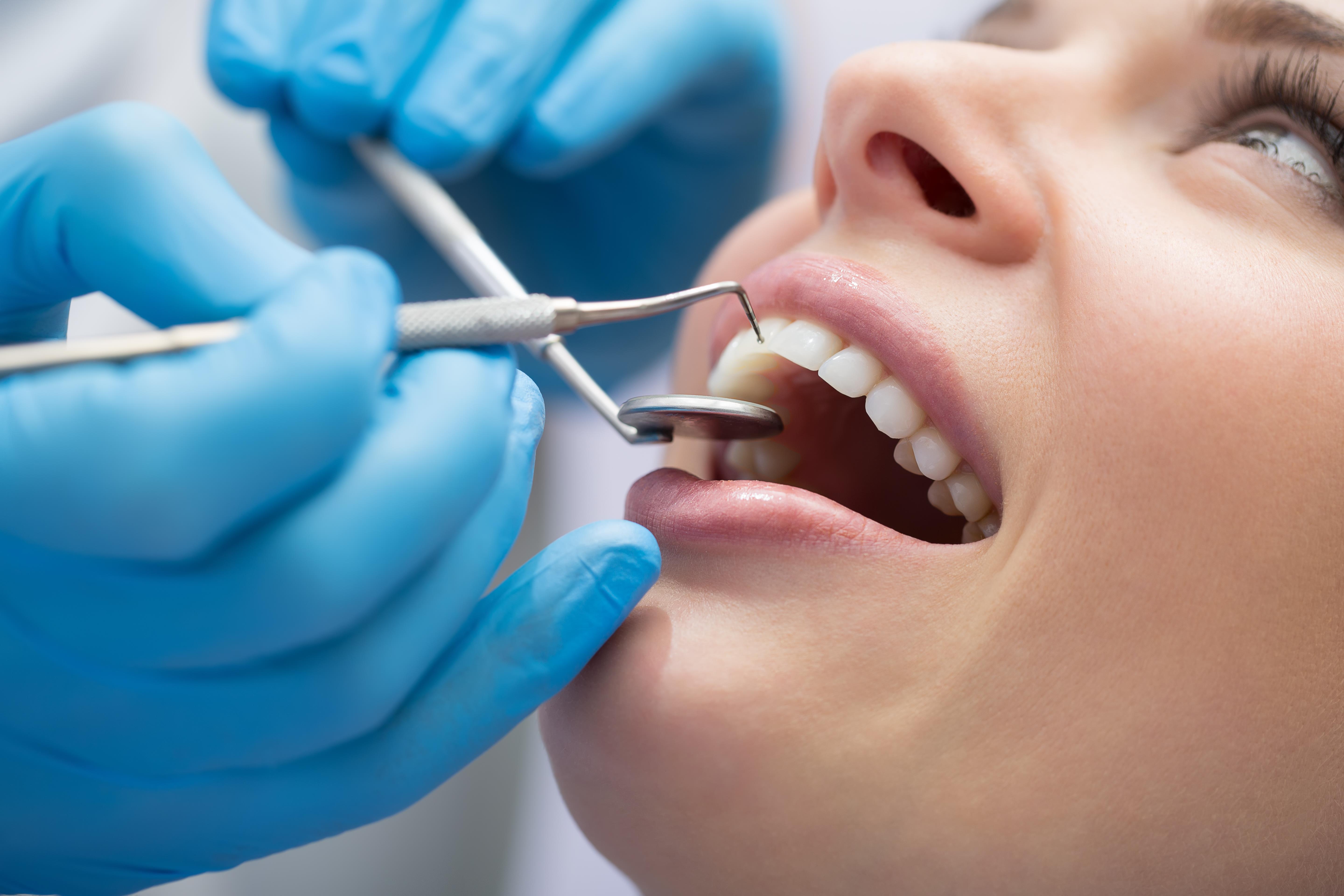Meet Your Pleasant Area Dentist Eugene OR and Their Providers
Meet Your Pleasant Area Dentist Eugene OR and Their Providers
Blog Article
A Guide to Common Oral Problems That Require a Dental practitioner's Care
Comprehending the array of dental conditions that demand professional care is extremely important for maintaining ideal dental wellness. Toothaches, for instance, can be symptomatic of serious concerns such as dental caries, broken teeth, or abscesses, each needing details treatments like fillings or root canals. Gum tissue illness, from the onset of gingivitis to extra severe periodontitis, emphasizes the value of normal oral examinations and cleanings. Influenced wisdom teeth and jaw disorders can introduce significant discomfort and complications. Guaranteeing timely check outs to the dentist can mitigate these issues successfully, however just what are the treatments and indicators entailed?
Toothaches
Toothaches are a common oral condition that can range from moderate discomfort to severe discomfort, typically suggesting a hidden problem that needs expert focus. This discomfort can stem from a variety of resources, including tooth decays, cracked or fractured teeth, and oral abscesses. Each of these conditions postures considerable risks if left untreated, possibly resulting in more extreme problems.
Tooth decays, additionally recognized as decays, are brought on by the build-up of plaque that wears down tooth enamel, leading to holes or pits in the affected teeth (dentists eugene). Split or fractured teeth, on the various other hand, might result from trauma, grinding, or attacking right into difficult items. These structural problems can reveal the sensitive inner layers of the tooth, creating pain and enhancing the risk of infection. Abscesses hurt infections at the root of a tooth or between the gum tissue and a tooth, commonly arising from serious decay or neglected tooth cavities.
Efficient therapy of toothaches includes addressing the origin. This may consist of fillings for dental caries, crowns for broken teeth, or origin canals and antibiotics for abscesses. Very early intervention by an oral specialist can avoid more degeneration and ease pain, making sure optimal oral wellness.
Gum Condition
Gum tissue disease, a prevalent yet usually neglected oral problem, shows up via inflammation and infection of the gum tissues and supporting tissues. If left without treatment, gingivitis can proceed to periodontitis, a more serious type identified by the destruction of the sustaining bone and connective tissue, ultimately leading to tooth loss.
The primary reason for gum tissue condition is microbial plaque, a sticky, anemic movie that frequently creates on teeth. Poor dental health, smoking cigarettes, hereditary proneness, and particular clinical problems, such as diabetic issues, can worsen the danger of establishing gum disease. Regular dental check-ups are important for early detection and management of this problem.
Therapy for gum disease ranges from specialist oral cleaning and scaling to advanced treatments like root planing and periodontal surgery, depending on the intensity. Preserving excellent dental hygiene techniques, consisting of brushing two times daily, flossing, and making use of an antibacterial mouthwash, can dramatically minimize the risk of gum tissue illness and promote much healthier periodontals.
Cavities
Dental caries, likewise referred to as cavities, are a typical oral condition identified by the damage of tooth enamel due to acid-producing germs in the mouth. These bacteria prosper on sugars and starches from food and beverages, creating acids that gradually wear down the enamel, leading to tooth cavity development.
Early-stage tooth cavities might not show symptoms, yet as they advance, they can cause tooth pain, sensitivity to chilly or warm, visible openings or pits in the teeth, and staining. If left unattended, tooth cavities can pass through Learn More deeper layers of the tooth, potentially causing serious pain, infection, and also tooth loss.
Stopping tooth cavities includes a mix of good dental health practices and dietary routines. Normal brushing with fluoride toothpaste, flossing, and routine oral exams are important. Dental professionals may additionally advise additional preventive actions, such as fluoride therapies and dental sealants, to protect teeth from decay.
Minor tooth cavities can be resolved with oral fillings, which bring back the tooth's structure. Much more sophisticated situations may need crowns or even root canal therapy if the degeneration has actually gotten to the tooth's pulp.

Impacted Wisdom Teeth
Affected knowledge teeth are a common oral problem that happens when the third molars, commonly described as knowledge teeth, fail to totally emerge or straighten correctly within the mouth. This problem often arises from inadequate room in the jaw or an abnormal growth angle of the teeth. Influenced knowledge teeth can result in a range of difficulties, including damage, discomfort, and infection to nearby teeth.
When wisdom teeth become influenced, they are often partly appeared or continue to be totally beneath the gum line. This partial eruption can create a pathway for germs to enter the gums, resulting in infections that materialize as swelling, discomfort, and also high temperature. Furthermore, website here impacted wisdom teeth can apply stress on surrounding teeth, potentially causing crowding or shifting.
A thorough dental assessment, normally involving X-rays, is crucial for identifying influenced wisdom teeth. Therapy frequently involves medical removal, carried out by a dental doctor. The treatment intends to alleviate discomfort and prevent further problems, such as cysts or damage to surrounding bone structures. Post-operative care is important to make sure correct recovery and minimize the risk of infection. Normal oral examinations are recommended to monitor the problem and preserve oral health and wellness.
Jaw Conditions
Jaw disorders, jointly known as temporomandibular joint (TMJ) problems, encompass a series of problems that affect the jaw joint and bordering muscular tissues. These conditions can materialize with signs such as pain or tenderness in the jaw, trouble chewing, a clicking or standing out sound when opening or shutting the mouth, and even chronic migraines. TMJ disorders can occur from different factors, including joint inflammation, jaw injury, or habitual habits like teeth grinding or jaw clenching.
Diagnosis of TMJ problems normally entails a detailed analysis by a dental practitioner, including a physical exam of the jaw, dental X-rays, and in some cases progressed imaging methods like MRI or CT checks to evaluate the joint's condition. Therapy options vary depending upon the seriousness of the problem. Non-invasive strategies such as physical therapy, dental splints, and medicines targeted at minimizing inflammation and discomfort are commonly first-line therapies. In more serious cases, surgical interventions may be required to deal with structural concerns within the joint.
Very early treatment by an oral expert is essential to avoid the progression of TMJ disorders and to keep general oral health. Patients experiencing relentless jaw discomfort or disorder must look for punctual examination and therapy.
Conclusion
Toothaches often suggest underlying problems such as tooth cavities, broken teeth, or abscesses, calling for prompt intervention. Impacted wisdom teeth and jaw problems likewise need specialist focus to relieve pain and stop more difficulties.
Dental dental caries, likewise recognized as caries, are triggered by the build-up of plaque that wears down tooth enamel, leading to holes or pits in the influenced teeth. Abscesses are painful infections at the root of a tooth or between the gum tissue and a tooth, typically resulting from serious decay or unattended tooth cavities.

Additionally, influenced wisdom teeth can apply pressure on surrounding teeth, potentially triggering crowding or changing.
Report this page